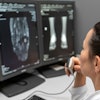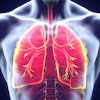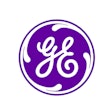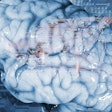Tuesday, November 28 | 10:30 a.m.-10:40 a.m. | SSG13-01 | Room S404AB
The combination of deep learning and radiomics features could help radiologists estimate the likelihood of a bladder cancer patient responding to neoadjuvant chemotherapy.Currently, there isn't a reliable method for predicting a patient's response to neoadjuvant chemotherapy before or during its administration for bladder cancer, said presenter Kenny Cha from the University of Michigan in Ann Arbor.
"Early assessment of therapeutic efficacy and prediction of treatment failure would help clinicians decide whether to discontinue chemotherapy at an early phase before additional toxicity develops, thus improving the quality of life of a patient and reducing unnecessary morbidity and cost," Cha said. "The ultimate goal is to improve survival for those with a high risk of recurrence while minimizing toxicity to those who will have minimal benefit. Therefore, development of an accurate and early predictive model of the effectiveness of neoadjuvant chemotherapy is important for patients with bladder cancer. "
The researchers developed a computerized decision-support algorithm for bladder cancer treatment response assessment that uses a combination of a convolutional neural network and radiomics features. The system estimates the likelihood that a patient will respond completely to treatment after neoadjuvant chemotherapy.
In an observer study, the system showed potential with CT urography to improve the performance of clinicians in identifying patients who will fully respond to treatment, according to Cha.
"A reliable assessment of the response to neoadjuvant chemotherapy at an early stage is vital for identifying tumors that do not respond and allowing the patient a chance of alternative treatment," Cha told AuntMinnie.com.
The group now plans to conduct a larger-scale observer study to further validate the impact of the system on clinicians for assessing treatment response in bladder cancer patients.
Get all the details by taking in this talk on Tuesday morning.




















